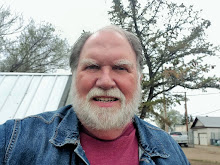A few years ago I took a University course in Intermediate Composition. I thought it would be interesting to convert some of my assignments into blogs.
For an assignment asking for a persuasive essay this was my student submission:
For an assignment asking for a persuasive essay this was my student submission:
Intermediate Composition teaches the methods and techniques allowing you to create concise, clear and stylish writing; but true communication requires an audience for your words. Attending a Toastmasters International club is a great way to give your writing a public audience while overcoming fears and learning useful skills. I was a club member for several years. What I learned there allowed me to overcome my nervousness to talk calmly before an audience when it really mattered. I urge you to overcome your own fears and find an audience for your writing skills at Toastmasters.
University courses in English Composition teach us how to string words, phrases and sentences into meaningful essays and stories; but sometimes written words are not enough. There is a point where persuasive and effective words need to be spoken in a public setting. Successful authors eventually hit the road for television interview shows. There they are expected to respond quickly to probing questions. Thinking and responding “off the cuff” is something that Toastmasters teaches. An advertising copy writer might labour for weeks on an advertising campaign but eventually that same writer has to verbally present his efforts to his agency management or clients. Giving such formal presentations is something that Toastmasters teaches. Other successful writers might want to speak before political meetings, church services or at management seminars. Speaking at such events is something that Toastmasters teaches.
So just what is Toastmasters? Toastmasters International is a world-wide non-profit organization dedicated to developing speech-craft and public speaking skills. According to their web site, they have national and district organizations in 106 countries along with many local clubs. These local clubs often advertise in local newspapers or phone directories and most are eager for new members. The international web site lists 63 clubs in Edmonton alone. It is accepted practice to attend meetings in several different local clubs before finding the individual club that fits your schedule and specific needs. Most local clubs have a diverse membership but some are aimed more towards specific industries, levels of competence or age groups. In my experience, club membership contains a high percentage of super-achievers who are already comfortable in front of an audience. These people want to rise to an even higher level as salesmen, teachers or preachers. But the membership also contains a similarly high percentage of people who consider three to be a big audience and grow pale at the thought of standing to read the shortest prepared question or criticism.
Local clubs organize weekly meetings where members practice skills according to their individual competence and comfort level. Since the meetings are run by local members, meeting preparation and organization are also learned. Listening skills are taught as well. Beginners might help with the timing of speeches or help in opening the meeting. They are given encouragement for their first quavering attempts at speaking scripted words while standing on their feet. Another member – having years of experience – might bring the club audience to tears or laughter while practising their entry for an international speech contest. The meetings can be quite fun and entertaining.
I have the natural ability to appear outwardly calm and to speak in an apparent intelligent manner when seated before a small group such as at a job interview; but I tremble when the collective gaze of a larger audience focuses in my direction. Teenage stuttering and family put-downs all make their presence felt. Even though I have a loud speaking voice, I am known as the quiet introspective member of my family. In the mid-nineties I attended my first Toastmasters meetings. There I took my first baby-steps at speaking before groups. My little speeches gradually grew in length and people actually laughed in the appropriate places when I attempted humour. I was genuinely shocked when some other club-members said that I had a voice made for radio.
Ten years ago, my brother David died of cancer. There was a memorial service in Vancouver that more than a hundred people attended. After the preacher spoke he asked if anyone wanted to say a few words. My eldest brother rose to speak but quickly became overcome with emotion and retreated after a few mumbled words. I rose with my hastily prepared speech clutched in my hand. I took a deep breath and remembered the calmness practised at my local Toastmaster club meetings. In my eulogy, I managed to both humorously praise the sunlight that David shone into the lives of others but also confronted the ways that he could be so utterly unique and difficult. There was laughter along with tears. Afterwards, many thanked me for my spoken words. Two years ago my mother died and I also managed some similar eloquence at her memorial service. I remain somewhat tongue-tied in social groups and I am in awe of those who utter long memorized speeches without referring to any written notes; yet my proudest life achievements include those two important occasions when I stood and publicly honoured the members of my family. I could not have done that without the skills that I learned at Toastmasters.
Every writer will eventually have an opportunity to speak in front of a seminar, wedding or business group. I urge you to take the writing skills learned in university courses and combine them with the public presentation skills taught at Toastmasters. Wherever you live, there is a local club seeking new members. Look them up today to discover more about Toastmasters International.

No comments:
Post a Comment